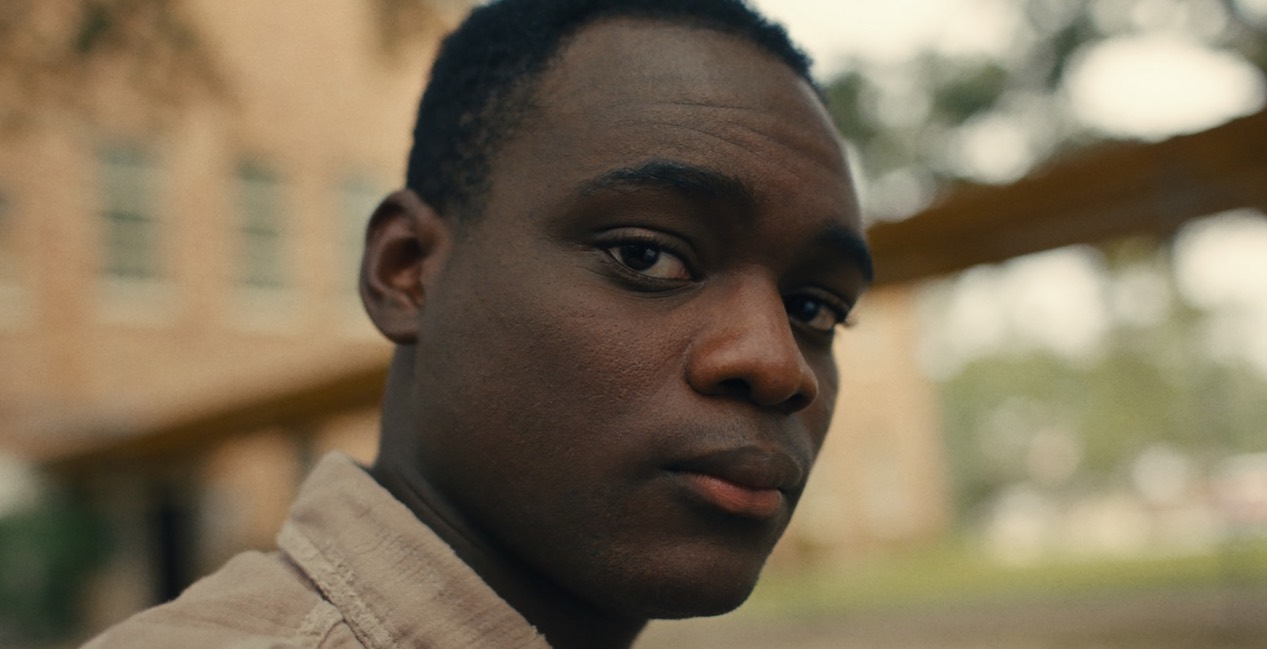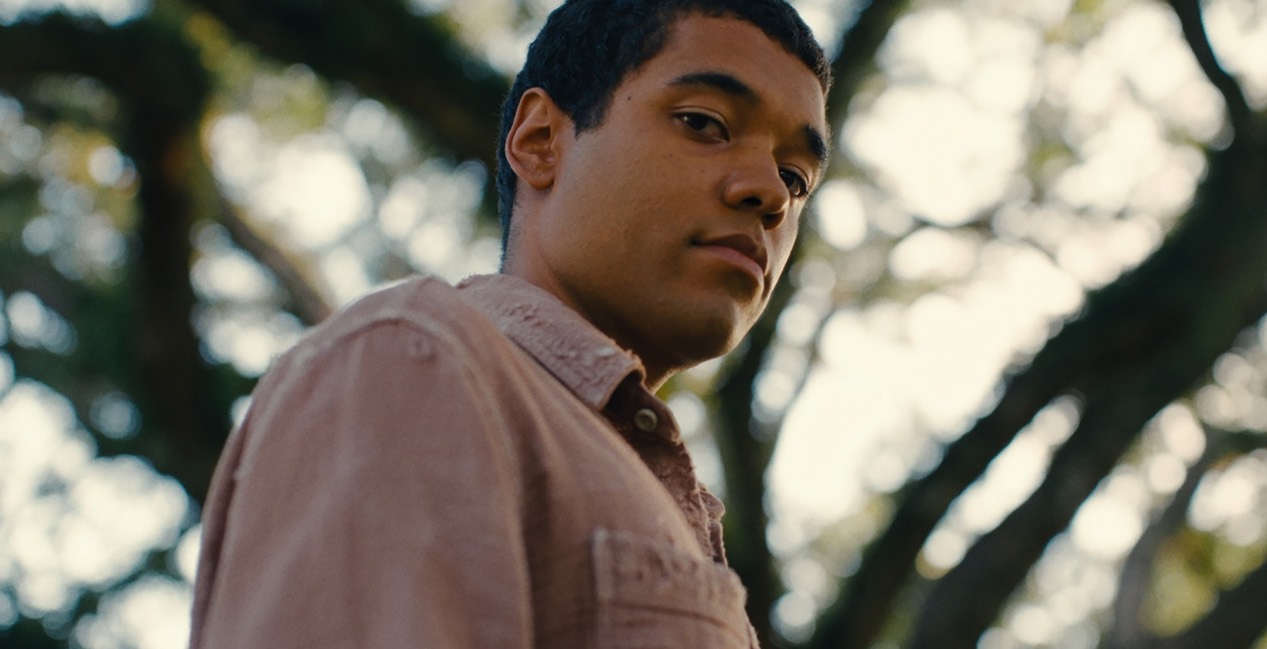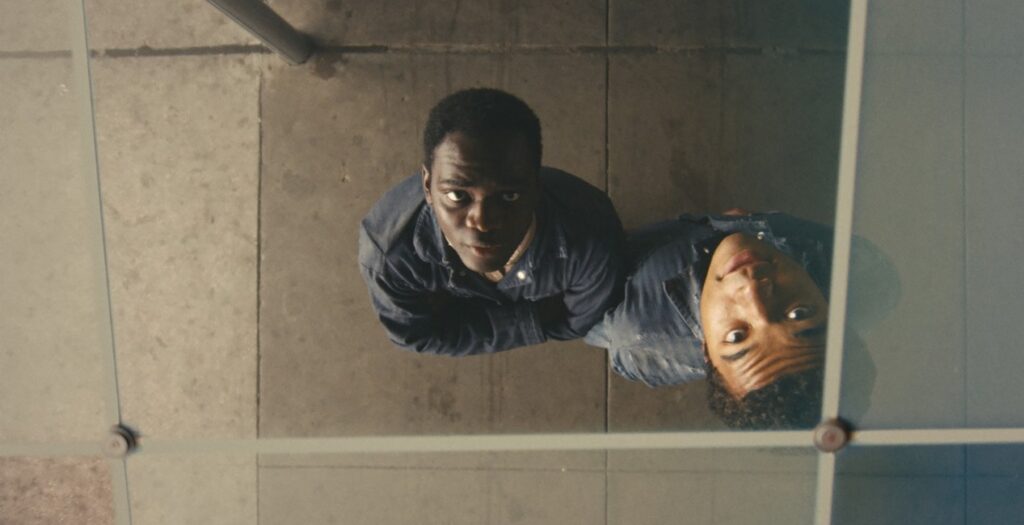Our first images of RaMell Ross’s incendiary Nickel Boys are tender and sweet. Through the deftly utilized first-person point-of-view, we take in the world at large that seems so all-encompassing, so impossibly vast and new, to young eyes experiencing the beauties of life for the first time.
Based on the Pulitzer Prize-winning novel The Nickel Boys by author Colson Whitehead, the film wastes little time in stripping away that polished veneer to give way to the tarnished, sickly underbelly of humanity. Despite being submerged in a relentless, brutal narrative that offers little means of hope for its protagonists, the film’s ability to find and cherish pockets of life and levity makes it all the more devastating.
By all accounts, Elwood (Ethan Herisse) is a model student. Intelligent and considerate, he’s poised for college through the aid of his progressive teacher. However, his dreams vanish due to unfortunate, discriminatory, wrong-time and place circumstances where he’s accused of being an accomplice to a stolen car. He’s sentenced to Nickel Academy, a toxic and abusive reformatory school in the Jim Crow South, in 1960s Florida.
There, Elwood meets Turner (Brandon Wilson,) a fellow Black teenager who is both a confidante, friend, and challenger of ideals. While Elwood holds tight to the optimism he grew up with, Turner reacts with earned cynicism. The cyclical, systemic racism they’re stuck in is fundamentally broken, and their bodies and minds are collateral.
Adapted by Ross and Joslyn Barnes, Nickel Boys anchors itself behind their respective leads’ steady, unflinching gaze. Their differences, Elwood’s shattering naivety against Turner’s grave belief that his life won’t survive Nickel Academy, make for a stunning, character-driven portrait. The writing is loose yet purposeful, adopting a meditative cadence as life flickers beyond their eyes.
Bouncing between perspectives, we get to know these characters in their entirety as we both traverse this cruel world with them while seeing the other through their point of view. They both shine brighter for being shown through the perspectives of the other.
There’s no shaking the air of tragedy that threatens to consume us, even for those who haven’t read the original novel. Because for all the warmth of familial love and friendly camaraderie that Nickel Boys captures, there’s that sickening edge of cruelty that latches onto our minds.
More than most, this is a film we feel through its expansive, lush visuals. The violence the members of the academy suffer isn’t shown so much as alluded to, refusing to exploit their pain, and the hints and shadowy, barely concealed secrets make it all the more harrowing. We know that Black boys are dying, buried on the grounds. So when a member disappears, he haunts the frame despite his absence.

Perhaps ‘haunt’ is the best way to describe this bold, towering picture. The story and the pain the characters suffer haunt us. But even the way Nickel Boys is shot, through increasingly fatigued eyes and peels of time, feels like a ghost story. To a degree, it is, as we see an older Elwood (Daveed Diggs) think back on his life as the truth behind the academy is revealed well into his adulthood. These were real people, real children, and they were brutalized and buried without cause, reason, or agency.
For such a technical achievement, it’s astonishing how much Nickel Boys makes us feel. There’s an incredible balance of craft and emotion, and how the former can bring forth more significant emotional tides. In some cases, it’s the notice of hands and shoes and how the camera dips to show how young some of those who attend Nickel Academy are. The score from Alex Somers and Scott Alario presses into us, utilizing an eerie and melancholy discordance to drive home further the uneasy setting they’ve found themselves in.
Cinematographer Joma Fray, whose remarkable world was on display in 2023’s All Dirt Roads Taste of Salt, works wonders. We taste the humid Florida air and feel the soil and gravel that Elwood and Turner run on. There’s a timeless, classic beauty in Fray’s work, here overcome when the sun peeks through the darkness the characters combat. Fray and Ross together make those opening moments so lasting, so staggering in presentations. Like the tinsel that slips through the pines of the Christmas tree, through young Elwood’s hands, any warmth, happiness, is fleeting.
The trio of leading performers, Herisse, Wilson, and Aunjanue Ellis-Taylor, Elwood’s grandmother, are remarkable. They ground us and the characters, though Wilson is a definite highlight, embodying the spark that makes Turner’s charisma and Elwood being drawn to it all the more realistic. Herisse, too, delivers a strong, breakthrough performance, especially as we watch the light fade from his eyes the further the film goes on.

But beyond everything, Nickel Boys triumphs due to Ross’s fearless approach to the material. The first-person point-of-view never feels gimmicky. Nor does it overstay its welcome. It only becomes more engrossing the longer we watch as it falls into a rhythm and bounces between Elwood and Turner.
There’s a scene so rapt with tension, so fast pace as perspectives slingshot this way and that, that you immediately wonder how Ross and editor Nicholas Monsour managed such a feat. And isn’t that the mark of good cinema? To question just how the creators managed to fool us or perform some visual trickery that seems technically impossible.
By challenging the form and embracing the medium for all its dynamic flexibility, Nickel Boys, through Ross’s thoughtful handling, helps redefine filmmaking. Nickel Boys pushes viewers into a new type of immersive storytelling as we sit and reflect on the horrors of history that have led to the horrors of now; we watch and mourn these characters and their tragic fates at the hands of a profoundly broken and racist system.
Nickel Boys is breathtaking in its suffocating beauty. Transcendent and painful, Ross performs magic and delivers a story that’s as hauntingly heartbreaking as it is visually arresting. There’s nothing else quite like it
Nickel Boys is available now on VOD.
Nickel Boys was nominated for two Academy Awards.
Nickel Boys (2024)
-
Rating - 10/1010/10
TL;DR
Nickel Boys is breathtaking in its suffocating beauty. Transcendent and painful, Ross performs magic and delivers a story that’s as hauntingly heartbreaking as it is visually arresting. There’s nothing else quite like it







